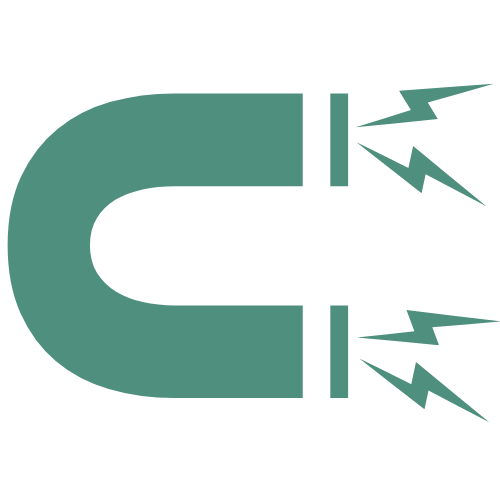Artificial Intelligence
I recently listened to a podcast episode (How to Live Forever on This is Love) about love and artificial intelligence. The host interviewed a CEO/AI specialist and also interviews the robot.

During the interview the robot says to the interviewer, “I know this is weird for you, because you’re afraid that every answer I give is programmed. But the truth is that everybody is programmed.”
This is so true.
We are all programmed to think and act in certain ways based on:
- the country we grew up in
- the language we speak
- the dynamics of our family of origin
- our formative relationships
- and dozens of other factors
I once read a study that examined differences in behavior and performance of white American schoolchildren and schoolchildren who had immigrated from South America. The study observed that the North American children asked more questions during class and requested more help when the teacher was walking around the room during project time. The authors wondered whether this was due to a language barrier. But as they interviewed and observed parents, they noticed a stark difference: American parents encouraged their children to ask questions, engage, and request help when they needed it. The South American parents encouraged their children to pay attention in class, be respectful, and listen to their teacher.
Neither belief is good or bad on its own. The beliefs (or “programs”) simply resulted in the children behaving in different ways in the same situation.
Do you know what programs you’re running?
Our “programming” affects our decision-making, what we allow ourselves to desire and do, and how we show up in the world.
As a coach, my primary work is to help my clients spot their own programming – and then decide which programs are bugs and which programs are useful and running fine.
Here’s an easy way to spot programming. When you describe yourself as some sort of archetype – “I’m a good girl,” “I’m just a perfectionist,” “I’m a procrastinator,” or the like. I notice that my clients often identify strongly with these personas – and a result, may find themselves limited within them, though perhaps they don’t notice the limitations at all, thinking that they’re just “the way things are”. Other clues are thoughts or sayings you repeat without resolution.
Let’s take an example.
I once had a client who kept saying, “Nobody listens to me!” She seemed to feel that her family weren’t hearing her, and also seemed to have trouble completing thoughts and listening others.
As she and I worked together, we discovered some of the programming from her family growing up. In her family culture, speaking any personal needs or emotions or bids for love were labeled “selfish.” There was nothing worse in her large family than being selfish.
She clearly had needs, but couldn’t even state them without reversing on herself. She had a need to be loved but a fierce belief that it was an unacceptable need. Her programming was in conflict with her natural, essential requirements. The system response was, Does not compute.
On the other hand, programming can be helpful. If you’ve been up half the night with the baby and have a big work project to finish the next day, running a program based on the thought I can do this; I’m a badass can be extremely helpful and productive. (Of course that programming could push you to unsustainable levels of exertion, too.)
Coaching can help you spot these “programs” and decide what’s working, what needs an upgrade, and what needs to be deleted.
Debugging our systems
“Shoulds” and “have to’s” and “rules” are also hints into programming.
Another client came to me for help with her resume when she was looking for a new job as a CPA. We crafted her resume and she found another job. As we stayed in touch, I learned that although her new job was “good,” she wasn’t happy. We began to tease out that she hated doing taxes – but she believed that every accountant had to do taxes, because that’s where the money is. She also believed that she “should” be really happy as a CPA – it was a good job that paid good money, it was what she went to college for, and it would be too much trouble to change careers, anyway.
These beliefs were programs that no longer worked for her. Note: when you begin to look at your programing, you don’t have to make any drastic decisions. Over time, this client decided to start her own accounting company and see if she liked that better. She did. Then she decided to hire someone to do taxes for her clients, while she took care of other work. She didn’t need to ditch her whole career all at once in order to resolve the problem. It just took tweaks to the programming to create a life that is very fulfilling for her.
Can you spot your programming?
Here are some questions to help you take a deeper look at your own programming.
Consider an area of your life where you feel a little (or a lot) dissatisfied.
What are your beliefs about this area of life? The “rules”? Your “shoulds” and “have to’s”?
Let’s take marriage as an example.
Maybe you believe that marriage is forever and divorce is not an option. Or maybe you believe that half of marriages end in divorce and yours may well be one of them someday. Maybe you believe that a good wife supports her husband by letting him make certain types of decisions. Perhaps you believe that people in happy marriages feel happy all the time. Maybe you believe that spouses should always have something to talk about.
Write down all the things you believe about the area of life you’ve chosen. Free write for 5 or 10 minutes – you may be surprised at what surfaces.
Now begin to consider each belief. How does it feel in your body? Beliefs that are serving you will likely make your body feel relaxed and comfortable. Beliefs that are not serving you will likely cause a feeling of tension, clenching or discomfort. (We’ll talk more about the process of using your body to guide you in the future.)
Changing the source code
If you believe, like my client did, that you “should” be happy in your chosen field because it’s a good job, that belief might cut you off from figuring out ways to optimize your situation (which, remember, may not require a drastic change but rather a tweak or series of tweaks). If you never question or shift the belief, you’ll keep searching for the “perfect” tax accounting job and wondering why you’re not happy.
It’s like this: let’s say you’ve printed out twenty copies of your resume for a job fair – and then you discover a major typo on the first page. You’re not going to go through and try to hand-correct each copy. You’re going to go to the source document on your computer (the “program”), fix the typo once, and then reprint all the copies.
It’s the same in life. If you continue to show up in different situations with the same belief that isn’t serving you, and try to fix the circumstances (rather than the belief), you’ll never get to the root of the issue.

